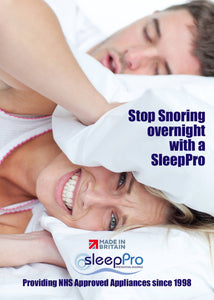According to new research reported by the BBC this week, beauty sleep is a real thing according to Swedish researchers at the Karolinka Institute, and a lack of it is a serious problem to both your looks and your health.

This new work has clearly shown that people who miss out on sleep appear far less attractive to others. Their sleep experiments suggest that a couple of bad nights can be enough to make a person look “significantly” more ugly to people who don’t know them.
The results published in the Royal Society Open Science Journal showed that people who had tired faces, were rated by strangers as less healthy and less approachable, and having dark circles under the eyes, and puffy lids, can even put others off socialising with you.
The research was based on student volunteers who were sent home with a small monitor to wear that would measure their movements whilst asleep to check that they had not cheated and slept when they should not have.
They were asked to get a good night’s sleep for two consecutive nights and then a week later, they were asked to restrict themselves to only four hours sleep per night for two nights in a row. The researchers took make-up free photos of the volunteers after both the good and the bad sleep sessions.
A further panel of women and men living in Sweden’s capital city of Stockholm looked at the photos and rated them on attractiveness, health, sleepiness and trustworthiness, as well as asking them: “How much would you like to socialise with this person in the picture?”
Those who looked tired in the photographs were easily identified and their scores for attractiveness suffered. In addition those looking at the photographs said that they would be less willing to socialise with the tired students, who were also perceived to be much less healthy.
We spend nearly a third of our lives asleep but how much sleep an individual takes and actually needs can vary greatly. Leonardo Da Vinci, Edison, Napoleon and Margaret Thatcher all survived on less than four hours a night but many of us aren’t getting enough shut-eye to function properly.
A good night’s sleep is also very important to one’s overall health but people think little about it until they cannot do it.
Along with the physical changes that happen to all of us as we get older, changes to our sleep patterns may also occur. As people age they tend to have a harder time falling asleep and more trouble staying asleep. It is a common misconception that sleep needs decline with age, but our sleep needs remain constant throughout life.
Snoring, a condition that gets worse with age is the primary cause of sleep disruption for many adults and is most commonly associated with persons who are overweight. In addition, older people spend more time in the lighter stages of sleep than in deep sleep.
Loud snoring is particularly serious as it can be a symptom of sleep apnoea. In sleep apnoea, breathing stops and the amount of oxygen in the blood drops. This alerts the brain, causing you to wake-up and resume breathing. These stoppages of breathing can occur repeatedly, causing multiple sleep disruptions throughout the night and result in excessive daytime sleepiness and impaired daytime function.
Untreated, sleep apnoea puts a person at risk for cardiovascular disease, headaches, memory loss and depression. If you experience snoring on a regular basis and it can be heard from another room or you have been told you stop breathing during your sleep, these are signs that you might have sleep apnoea and it should be discussed with your medical advisor.
Sleep studies are prone to concluding that we’re all sleep-deprived. In fact, scientists aren’t really sure of the exact amount of sleep required, and studies find that the requirement varies significantly from one person to another, for reasons not fully understood.
One thing is sure however – you’ll certainly know if you’ve had enough quality sleep and whether you feel bright and refreshed the next day. It’s easy to do things to improve it such as preventing snoring. That’s something both you and your partner will both benefit from and you’ll feel the difference quickly.
Make sure you play the part of Beauty and not that of the Beast.
John Redfern



